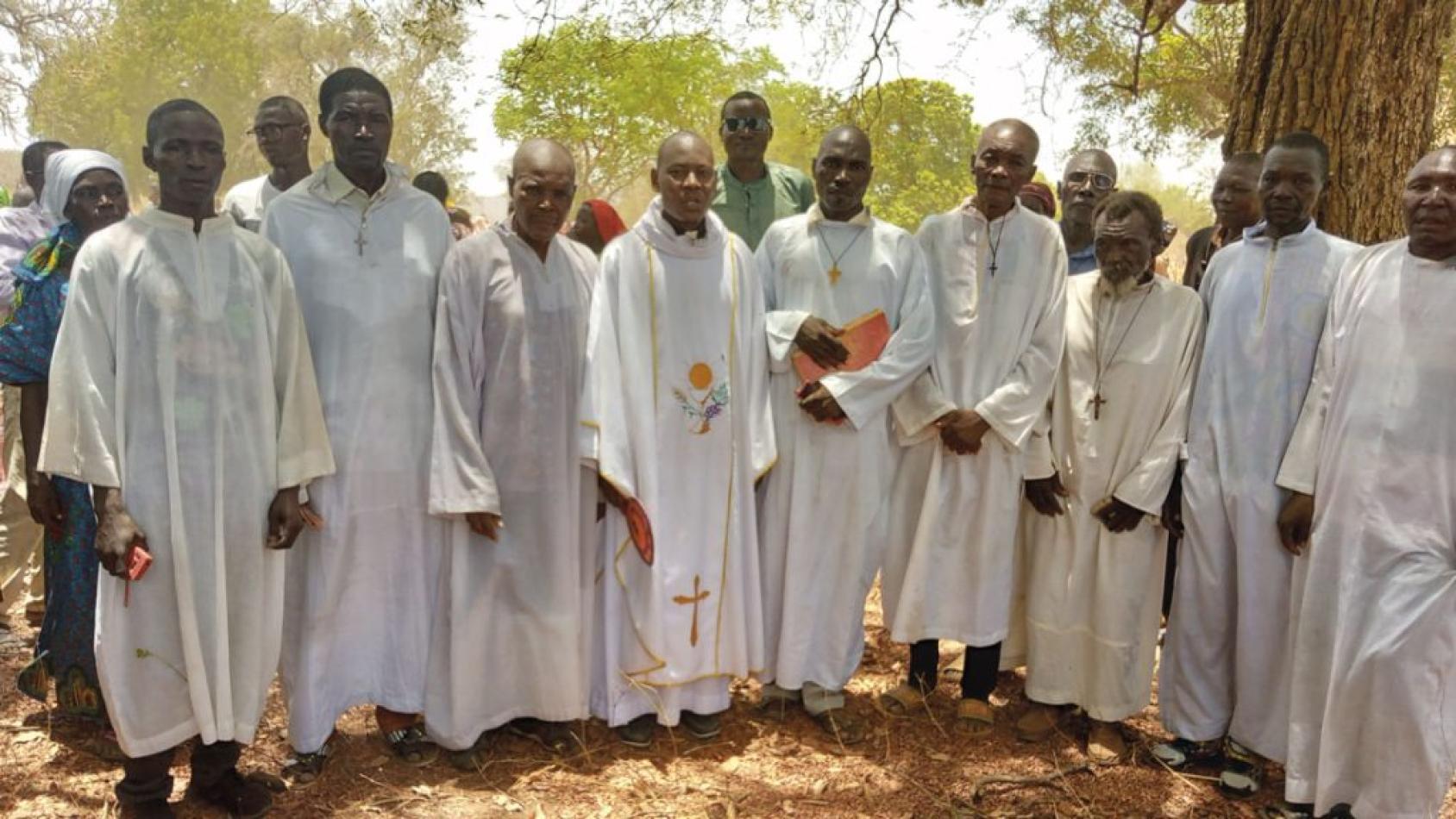Daniel Comboni
Misioneros Combonianos
Área institucional
Otros links
Newsletter
Saturday, September 2, 2023
Father Ngalite Regis-Eric, a young Comboni priest from the Central African Republic shared with us his missionary experience. “An African proverb says that “Only birds can mix with birds in the same nest because when the snake arrives, they all run away”. I see myself as a bird among other birds.” [Comboni Missionaries]
In mid-2019, having completed my theology studies, I was assigned to the parish of Sant Michel de Dono-Manga (Chad) for a two-year period of missionary service. I then had my priestly ordination in January 2022 in my own country, the Central African Republic. Following this, I was once again assigned to work in Chad.
I enjoy working in Chad, working here has provided me with many positive experiences. Here I learned to appreciate Muslim people, towards whom I had some distrust due to the conflicts that we have suffered in my country between the Seleka and the Antibalaka. I have now freed myself from all prejudices and have many Muslim friends. Furthermore, I am developing work with young people which fills me with joy. As in my country, young people are the majority here, and even if I turn 30 in July and consider myself young, I have to accept that I am part of the 30% of the oldest in my parish.
The parish of Sant Michel belongs to the diocese of Laï and is located in a rural area away from the big cities. Because of its size, we have divided it into three large pastoral areas cared for by each of the three priests who make up the Comboni community. Even though I am in charge of the eastern area, and also in charge of youth ministry, I have to travel to all parts of the parish. We also have a medical missionary brother who works in our dispensary.
The first time I attended Sunday mass in the parish centre of Dono-Manga, I was very happy to see that the church was full of young people, but I was also intrigued by the fact that the liturgical songs were enlivened by a small choir of only three people. I asked the pastor if there were youth movements or if youth work was coordinated, and although he answered in the affirmative, he also mentioned, with a wry smile, the lack of youth involvement in parish activities. I asked him to let me try.
Three weeks after my arrival, I called a meeting of all the young people of the parish to ask them what was going on and why the youth movements weren’t very energetic. It was hard to get started, but in the end, everyone talked about the reasons that led them to disassociate themselves from the Church. Many accused the coordinators of the youth movement of not doing things right and even of appropriating the group’s assets.
I listened and listened, and then asked them to join their youth movements again or, if they did not belong to one, to choose whichever they liked best. I did the same while visiting the different areas of the parish, reorganizing the youth coordinators and keeping an eye on the most committed with a view to inviting them to accept roles of responsibility in their respective movements.
Since there was already a choir at the parish church singing in Ngambay and Sara, the local languages, I called another meeting for boys and girls who wanted to join the choir in French. To my great surprise, one Saturday I found fifteen young people in the parish hall, because they wanted to be part of the choir. Since I play the drum well, we bought one and I taught them how to play it. With the help of a musician who would come often from Mundu, some began to learn the guitar and the piano. Currently, the choir functions very well and, in addition to animating one of the masses in the parish, every month it organizes a concert of religious songs in the youth centre of the parish, in which the whole village participates, including many Muslims. Admission costs 50 CFA francs, the equivalent of 7 cents (in euros).
Some youth groups are becoming very dynamic, especially the Kemkogi (a Catholic children’s movement), the Guides and the Scouts. I invited the diocesan chaplains and coordinators of these groups to come to the parish for some formation meetings, and we bought books and brochures to help us organize this work.
We always start from the value of fraternity, and it is nice to see that when a young person is ill, for example, other members of his group support him financially and go to his home to pray with him. When there are youth meetings at the diocesan level, I accompany those responsible to Laï with our vehicle.
There have also been some difficulties. I have a very open relationship with young people, and although there are no problems with boys, it is more complicated with girls because, according to the local culture, a man does not approach a woman in public unless she is his wife, her sister or her friend. This has posed challenges, but we have overcome them.
I have the impression of receiving from the people the same affection I feel for the children and young people of the parish. When I’m away from Dono-Manga, my parishioners call me to find out where I am. Furthermore, it is a joy to go anywhere in the parish and hear the cries of children and young people: “Eric, Eric, Eric”. An African proverb says that “Only birds can mix with birds in the same nest because when the snake arrives, they all run away”. I see myself as a bird among other birds.




